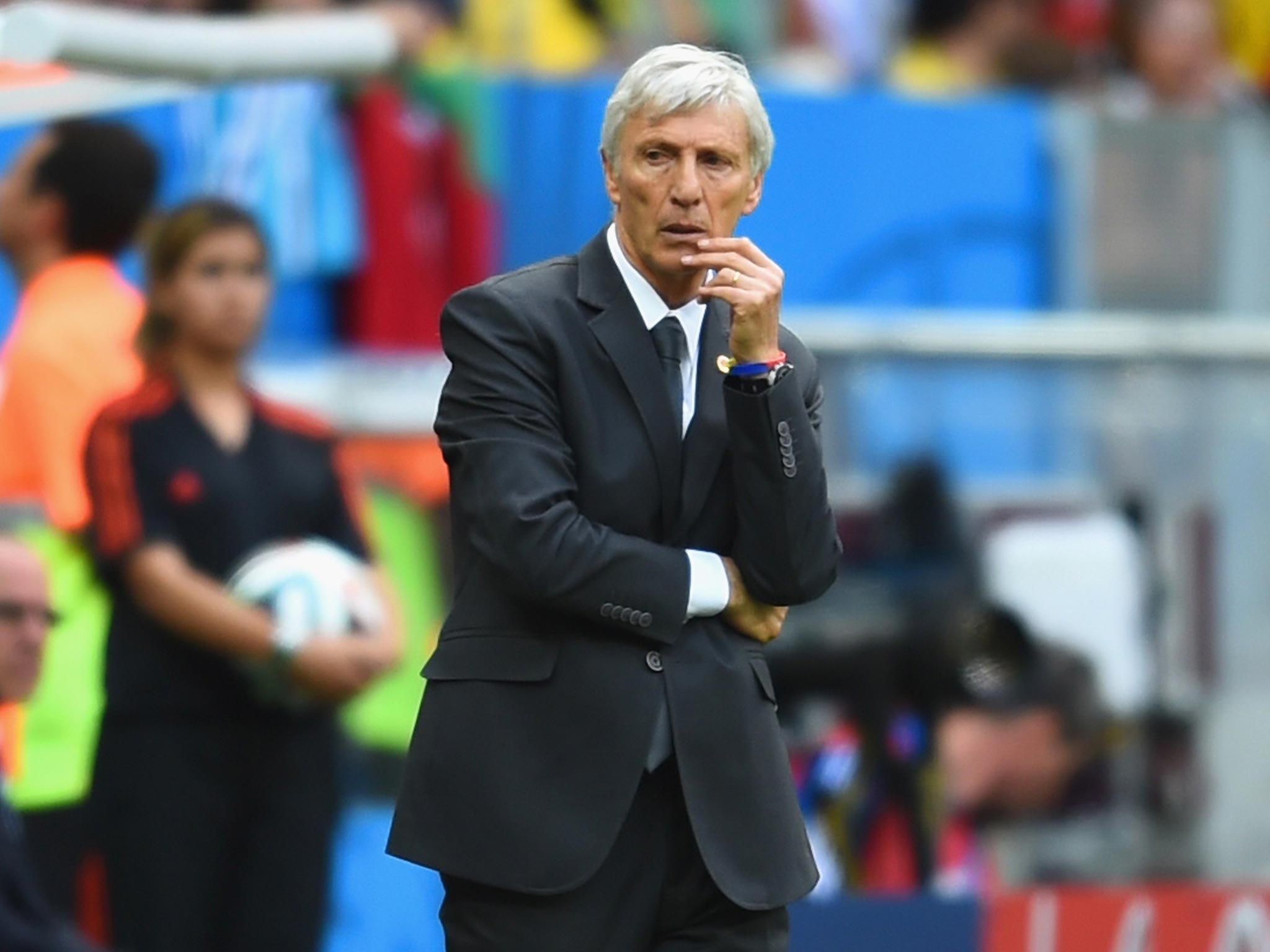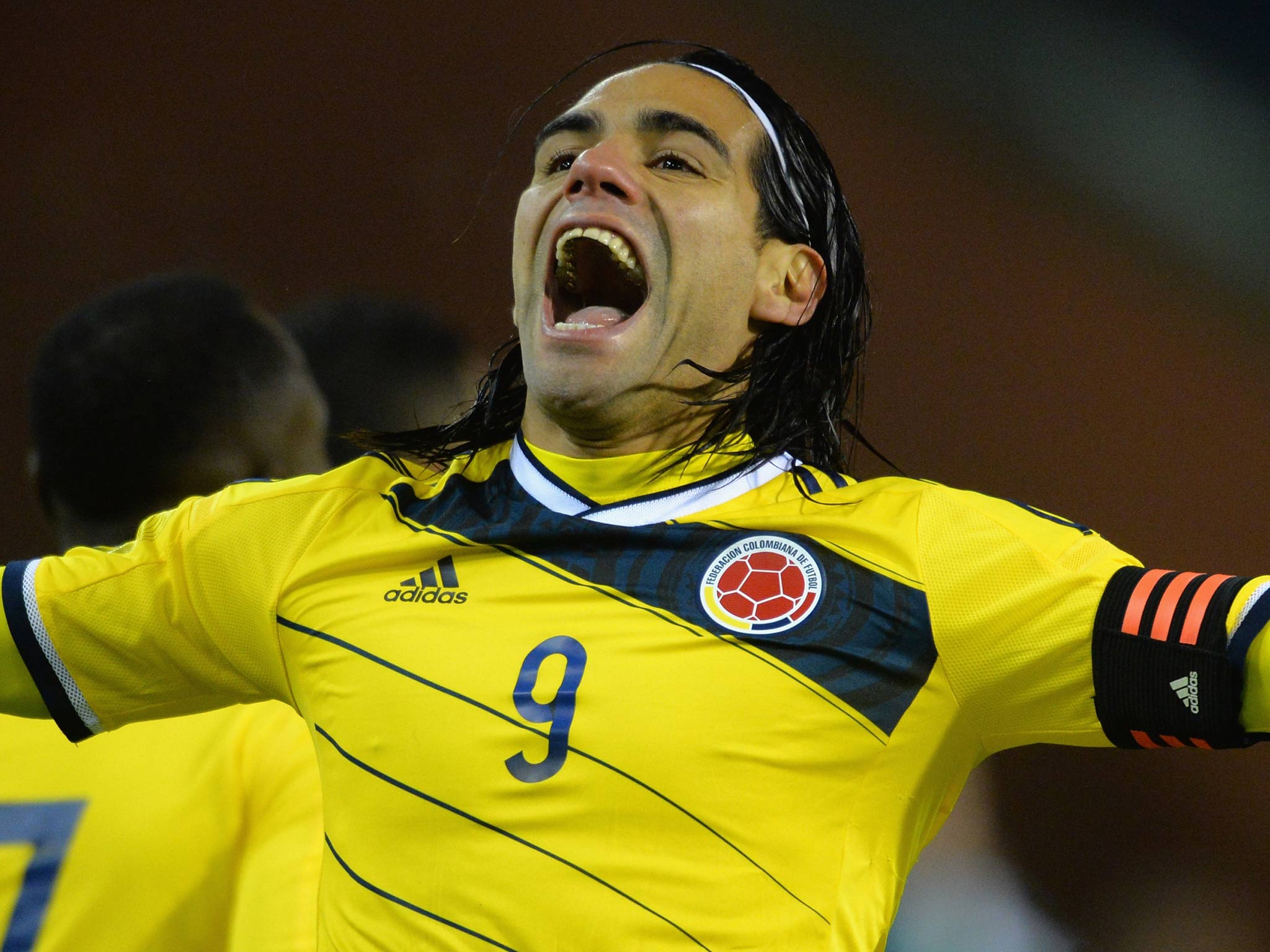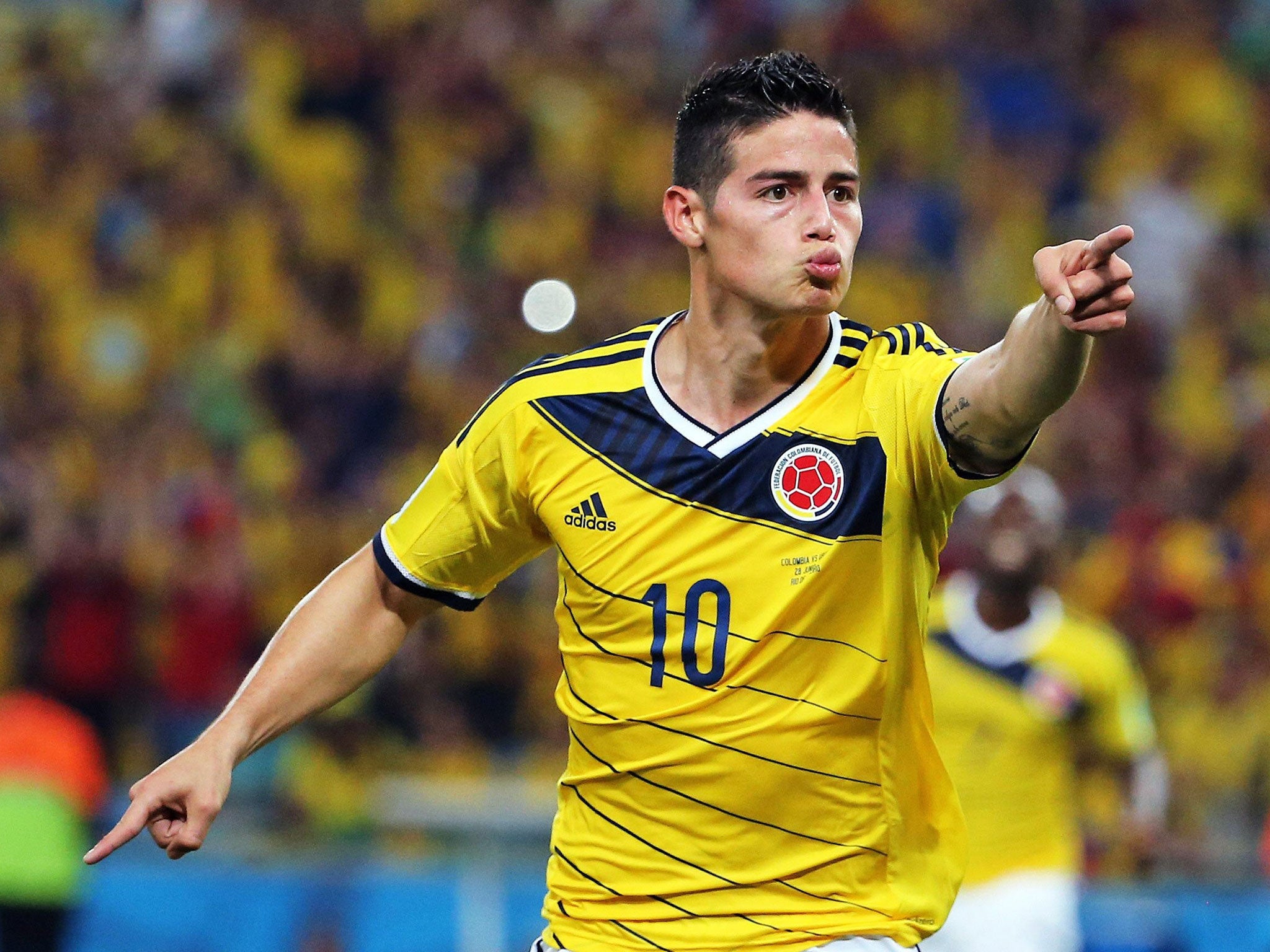Brazil vs Colombia World Cup 2014 preview: How James Rodriguez's Colombia have rebuilt since Andres Escobar tragedy
Twenty years to the day after the Colombian defender was murdered for scoring a World Cup own goal, the new stars of the national side are helping their nation come to terms with an act of savagery that still haunts

In the small hours of 2 July 1994 came the moment that defined Colombian football for a generation.
As the squad returned from a disastrous World Cup, Andres Escobar, whose own goal had set them on the path to elimination by the United States, told his team-mates not to go out. The mood in Colombia was poisonous.
Escobar, however, ignored his own advice and went to a bar, the Padua Disco in Medellin, where he was shot dead. The assassin, a chauffeur for one of Medellin’s gangster families, screamed “own goal” six times, one for each bullet that he fired into the defender’s body.
The author Jon Spurling, who investigated the murder in his book Death or Glory, succeeded in tracking down a policeman, Juan Carlos Metiche, who had also looked into the killing.
He said the popular story that Escobar had been targeted by two gangsters, the Gallon brothers, whose chauffeur, Humberto Munoz, had done the killing because they had bet $160,000 on Colombia winning the World Cup were almost certainly untrue. He was astonished that an educated, intelligent man like Escobar had chosen a dive like the Padua for his first outing.
The Gallons had encountered Escobar by chance in the car park and begun taunting him about the own goal in Pasadena. Escobar, who had been drinking aguardiente, a local spirit distilled from cane sugar that one reviewer said “will make you want to punch someone in the face”, gave as good as he got. Munoz ended the argument with his pistol. Escobar lay dying on the concrete.
Jose Pekerman, who has orchestrated the great revival of Colombia that sees them face Brazil in Fortaleza for a place in a World Cup semi-final, also played his football in Medellin, albeit for Independiente rather than Escobar’s club, Atletico.
Pekerman’s playing career was less distinguished – he combined work as a taxi driver in Buenos Aires with coaching Argentinos Juniors.
As the grandson of Jewish immigrants from Ukraine, he was an outsider in Argentina. The man who appointed him to manage the national team in 2004, Julio Grondona, the president of the Argentinian Football Association, caused outrage when he commented: “Jews don’t like it when things get tough.”
His appointment had been opposed by three figures who dominated Argentinian football: Cesar Menotti, who had won the 1978 World Cup as coach; Carlos Bilardo, who did the same in 1986; and Diego Maradona. All pointed out that at senior club level, Pekerman had achieved nothing of note.
He was, however, a superb youth-team coach who had taken Argentina to three World Youth Championships and named his dogs after the places where they had won – Qatar, Malaysia and Argentina. And yet his time with Argentina’s senior squad came to an end in Berlin’s Olympic Stadium, which given that it had staged Hitler’s Games, had an irony that would not have been lost on a Jewish manager.

But for Miroslav Klose’s late equaliser and the inevitable Germany victory in the penalty shoot-out, he would have taken Argentina to the semi-finals. Instead, he found himself pilloried, first for omitting the teenage Lionel Messi – a strange decision for a man who made his name in youth-team football – and dropping Javier Zanetti.
Pekerman is distantly related to the Hollywood great Gregory Peck and has the same dignified bearing Peck displayed in To Kill a Mockingbird. He resigned. Maradona, appointed to succeed him, faced Germany in another World Cup quarter-final in Cape Town four years later. His tactics consisted of little more than pumping the air with his fist. Argentina were humiliated 4-0. Maradona was not given the chance to quit.
Two years ago, after a couple of undistinguished spells in club football, the man known as El Professor took charge of Colombia’s national team three matches into qualifying. They were 35th in Fifa’s rankings then and fifth when the draw was made.
Radamel Falcao, who but for injury should have spearheaded Colombia’s first World Cup in 16 years, said of Pekerman: “He tried to give us the necessary self-belief to go out there and play the kind of football we are used to. We always seek to win but without throwing caution to the wind. We have become a more balanced and mature team.”
Maturity, or the lack of it, has always been the undoing of Colombia. Rene Higuita’s disastrous attempt to run 40 yards out of his goal in Naples and take the ball past Cameroon’s Roger Milla was a prime example, although Higuita’s links to the Colombian narcotics cartels afforded him a protection of sorts in the fall-out from the 1990 tournament.

The injury to Falcao should have put an end to the dreaming in Bogota and Medellin but it may have benefited Colombia. The boys of 1994 had been undermined by the crushing expectations of a country that had seen them thrash Argentina 5-0 in qualifying in Buenos Aires and been tipped by Pele to win the tournament.
But Colombia without Falcao were like Argentina without Messi. And yet, in qualification, Pekerman had experimented ceaselessly and in Falcao’s team-mate at Monaco, James Rodriguez, he had a forward who could play almost anywhere.
When, in the round of 16, Pekerman faced Uruguay, his counterpart and friend, Oscar Tabarez, would have expected Jackson Martinez, who had scored twice against Japan, to lead the Colombian attack in the Maracana. Instead, Pekerman pushed him out wide, allowing Rodriguez to run into the space left by Martinez’s markers with devastating consequences.

The 2-0 humbling of Uruguay coincided with Colombia’s presidential elections. Pekerman, who was given Colombian citizenship after qualification, received 400,000 votes, although his name was not on the ballot paper.
Expectations are now as high as they ever were in 1994 but before Colombia face Brazil at the Castelao, it is worth remembering Escobar’s words at his final press conference after the team flew home. “Don’t let defeat affect your respect for the spirit of the game because life goes on.”
Join our commenting forum
Join thought-provoking conversations, follow other Independent readers and see their replies
Comments